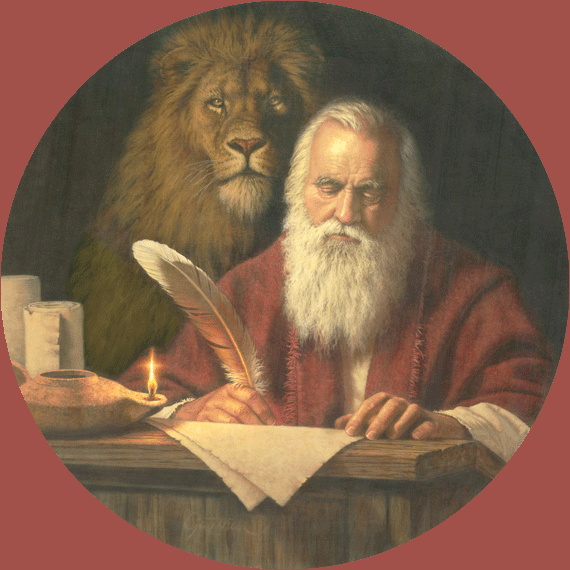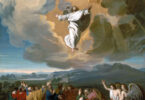Fwd by Trần Kim Thục
Gospel Mt 9:9-13
As Jesus passed by,
he saw a man named Matthew sitting at the customs post.
He said to him, “Follow me.”
And he got up and followed him.
While he was at table in his house,
many tax collectors and sinners came
and sat with Jesus and his disciples.
The Pharisees saw this and said to his disciples,
“Why does your teacher eat with tax collectors and sinners?”
He heard this and said,
“Those who are well do not need a physician, but the sick do.
Go and learn the meaning of the words,
I desire mercy, not sacrifice.
I did not come to call the righteous but sinners.”
he saw a man named Matthew sitting at the customs post.
He said to him, “Follow me.”
And he got up and followed him.
While he was at table in his house,
many tax collectors and sinners came
and sat with Jesus and his disciples.
The Pharisees saw this and said to his disciples,
“Why does your teacher eat with tax collectors and sinners?”
He heard this and said,
“Those who are well do not need a physician, but the sick do.
Go and learn the meaning of the words,
I desire mercy, not sacrifice.
I did not come to call the righteous but sinners.”
Meditation: Ephesians 4:1-7, 11-13
. . . the one hope of your call; one Lord, one faith. (Ephesians 4:4-5)
Can you picture the apostle Paul writing about hope—from a prison cell—to the Christians in Ephesus? According to Paul, their one hope lay in the fact that God had revealed himself to be the “Father of all,” opening up the gift of faith, belonging, and salvation to every kind of person (Ephesians 4:6).
. . . the one hope of your call; one Lord, one faith. (Ephesians 4:4-5)
Can you picture the apostle Paul writing about hope—from a prison cell—to the Christians in Ephesus? According to Paul, their one hope lay in the fact that God had revealed himself to be the “Father of all,” opening up the gift of faith, belonging, and salvation to every kind of person (Ephesians 4:6).
Jesus demonstrated this kind of openness when he invited the tax collector Matthew to join his most intimate circle of friends. He could see that Matthew and his associates engaged in corruption and suffered from their misplaced priorities and the weight of many sins. But that didn’t stop Jesus from eating with them or from inviting them to follow him in a new way of life. He gave them a clear opportunity to move beyond their past and to join his family of faith.
Before Jesus came to earth, many people believed that God showed favor only to the righteous. People who were considered sinners or who suffered from physical illnesses were said to be under God’s judgment. There were sharp divisions between those who were thought to be “worthy,” “clean,” and “chosen” and those who were outside the scope of God’s mercy.
When he chose Matthew, Jesus erased all such lines. It’s hard to imagine what a relief that must have been—not just for Matthew, but for everyone else who had previously fallen outside the lines. No wonder Matthew became such an effective evangelist! Having received mercy, he could share that message of mercy with the rest of the world firsthand. Mercy for all! One Lord and one faith! An invitation for the unrighteous as much as the righteous! That is our Catholic faith. That is our hope.
Many times, our struggle to live at peace with ourselves and other people stems from a lost sense of God’s mercy. Every day, he invites us to forgive and to be forgiven. As we recover our understanding of this high calling, we can be newly empowered to build up the body of Christ.
“Father, let the wideness of your mercy unite us to the people around us.”
“Father, let the wideness of your mercy unite us to the people around us.”
Saint Mathew
St. Matthew, one of the twelve Apostles, is the author of the first Gospel. This has been the constant tradition of the Church and is confirmed by the Gospel itself. He was the son of Alpheus and was called to be an Apostle while sitting in the tax collectors place at Capernaum. Before his conversion he was a publican, i.e., a tax collector by profession. He is to be identified with the “Levi” of Mark and Luke.
St. Matthew, one of the twelve Apostles, is the author of the first Gospel. This has been the constant tradition of the Church and is confirmed by the Gospel itself. He was the son of Alpheus and was called to be an Apostle while sitting in the tax collectors place at Capernaum. Before his conversion he was a publican, i.e., a tax collector by profession. He is to be identified with the “Levi” of Mark and Luke.
His apostolic activity was at first restricted to the communities of Palestine. Nothing definite is known about his later life. There is a tradition that points to Ethiopia as his field of labor; other traditions mention of Parthia and Persia. It is uncertain whether he died a natural death or received the crown of martyrdom.
St. Matthew’s Gospel was written to fill a sorely-felt want for his fellow countrymen, both believers and unbelievers. For the former, it served as a token of his regard and as an encouragement in the trial to come, especially the danger of falling back to Judaism; for the latter, it was designed to convince them that the Messiah had come in the person of Jesus, our Lord, in Whom all the promises of the Messianic Kingdom embracing all people had been fulfilled in a spiritual rather than in a carnal way: “My Kingdom is not of this world.” His Gospel, then, answered the question put by the disciples of St. John the Baptist, “Are You He Who is to come, or shall we look for another?”
Writing for his countrymen of Palestine, St. Matthew composed his Gospel in his native Aramaic, the “Hebrew tongue” mentioned in the Gospel and the Acts of the Apostles. Soon afterward, about the time of the persecution of Herod Agrippa I in 42 AD, he took his departure for other lands. Another tradition places the composition of his Gospel either between the time of this departure and the Council of Jerusalem, i.e., between 42 AD and 50 AD or even later. Definitely, however, the Gospel, depicting the Holy City with its altar and temple as still existing, and without any reference to the fulfillment of our Lord’s prophecy, shows that it was written before the destruction of the city by the Romans in 70 AD, and this internal evidence confirms the early traditions.
Views: 0








